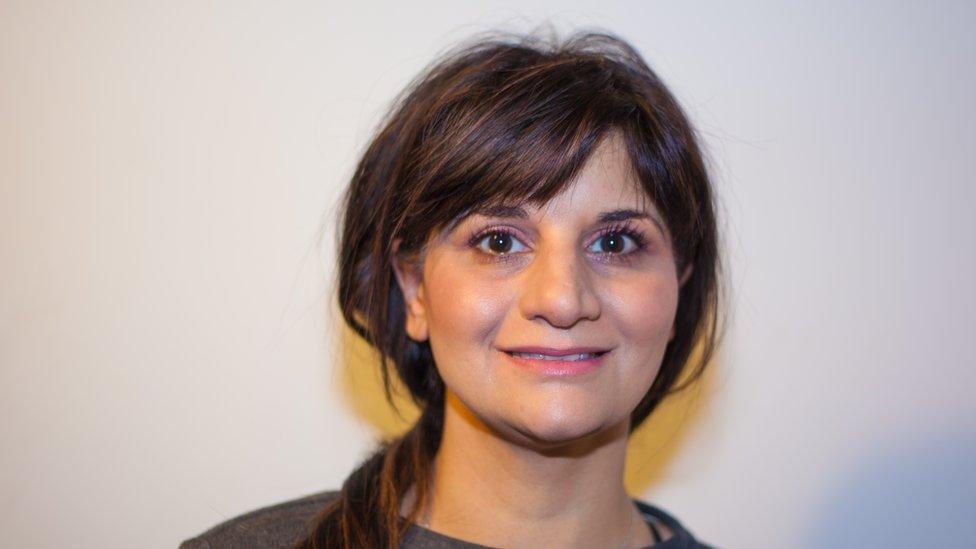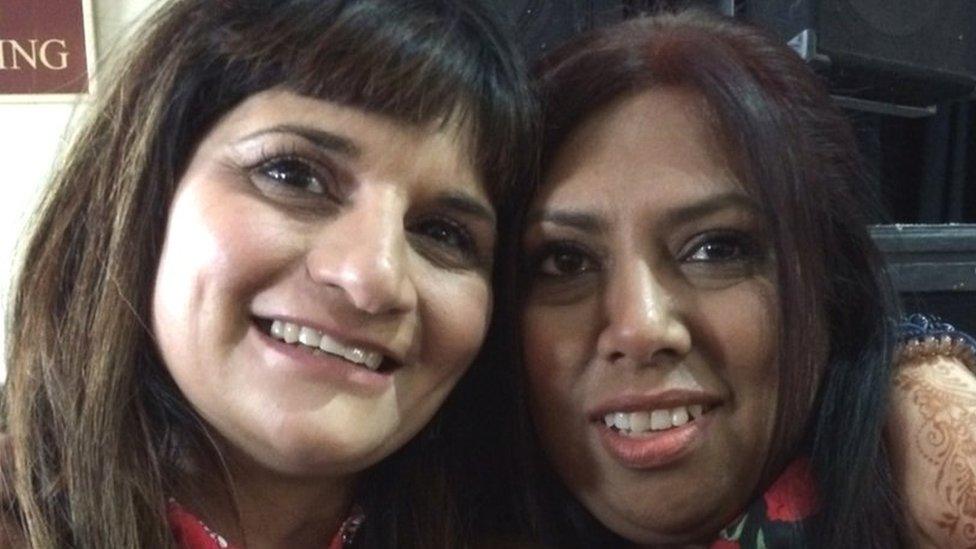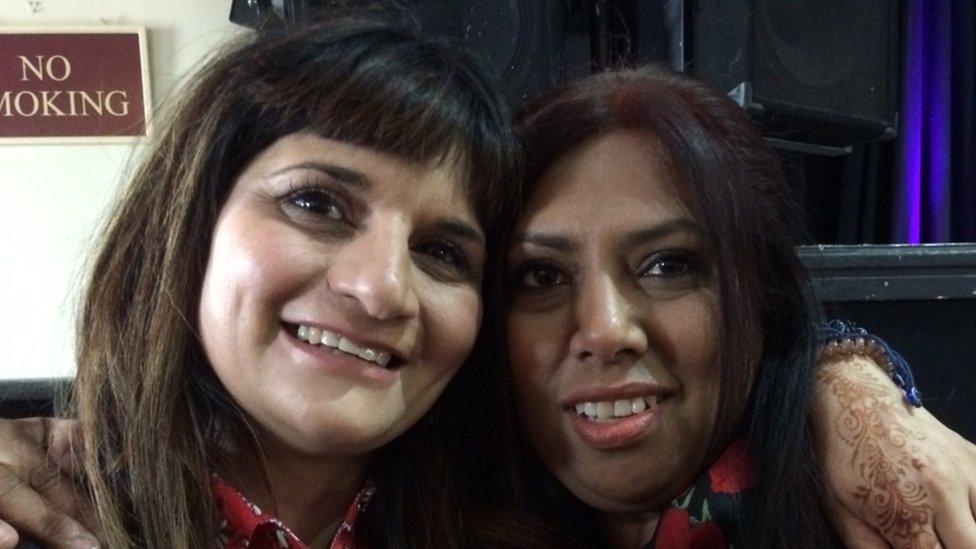Deselected Blackburn councillor claims 'intimidation'
- Published

Saima Afzal alleges she has been the victim of misogyny in the Blackburn Labour Party
One of the first two Muslim female councillors in Blackburn has refused to take part in a Labour selection, saying she is "a victim of intimidation" according to a speech seen by the BBC.
Saima Afzal was elected along with Maryam Batan in 2018 in a town with one of England's biggest Asian communities.
They were recently deselected, but claimed party rules had been broken to force them out.
Labour reinstated Ms Batan after rerunning the selection on Friday.
However, the BBC has seen a copy of a speech that Ms Afzal delivered at the event where she said "the process isn't fair".
The Labour Party has not commented specifically on the case, but has previously said it is committed to improving representation at all levels within the party and ensuring it reflects a diverse society.

Saima Afzal and Maryam Batan are seen as trailblazers
Earlier in February, Ms Afzal and Ms Batan stood for reselection by the Blackburn Labour Party for May's local elections but two other women were chosen instead.
Supporters of Ms Afzal and Ms Batan believe they have been victims of misogyny from some older Asian men in the Blackburn Labour Party, because they were seen as independent-minded and willing to speak out against old-fashioned attitudes.
They claimed the two women's replacements were not eligible for selection as they had been members for less than a year and were handpicked to toe the line.
However, Councillor Zamir Khan, who ran the first selection process in February, described the reaction of Ms Afzal and Ms Batan as "sour grapes".
At Friday's rerun, one of the women who was chosen as a replacement was allowed to continue as a local election candidate.
The other woman was not allowed to stand as it is understood she had not fulfilled selection criteria.
The Lancashire town of Blackburn saw the immigration of people from India and Pakistan in the 1960s, with many working in its textile mills. In the 2011 census, nearly a third of its 147,500 residents were recorded as Asian.
Yet until 2018, not one Asian woman had been elected as a councillor, while 19 Asian men had.
- Published20 February 2020

- Published4 May 2018

- Published28 February 2018
